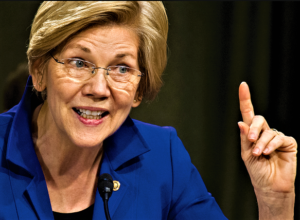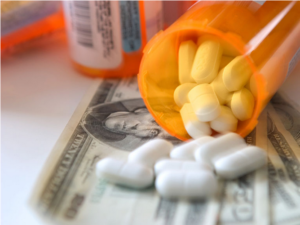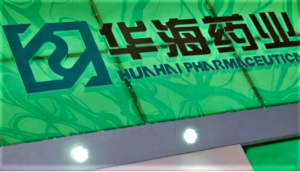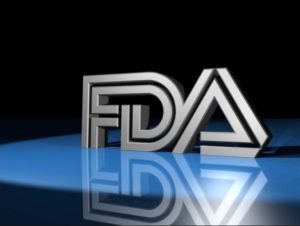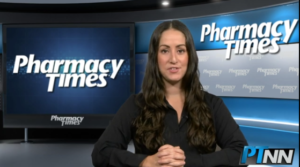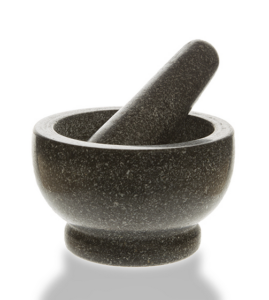- Elizabeth Warren: It’s time to let the government manufacture generic drugs (washingtonpost.com)
Forty-seven states and the Justice Department are investigating a price-fixing conspiracy that’s driving up the cost of generic drugs in the United States. One investigator called it “most likely the largest cartel in the history of the United States.” This crisis calls for action. That is why I’m introducing legislation to authorize the public manufacture of generic drugs wherever drug companies have warped markets to drive up prices....Drug companies use the “free market” as a shield against any effort to reduce prices for families. But they’re not operating in a free market; they’re operating in a market that’s rigged to line their pockets and limit competition. The entire pharmaceutical industry in reality runs on government-granted monopolies, mostly in the form of long-term patent protections...
- Four Democrats Introduce Senate Bill to Allow HHS to Block “Excessive” Drug Price Increases (centerforbiosimilars.com)S.3754 - A bill to prohibit price gouging in the sale of drugs. (congress.gov)
...Senators Richard Blumenthal, D-Connecticut, Kamala Harris, D-California, Amy Klobuchar, D-Minnesota, and Jeff Merkley, D-Oregon, introduced a bill on the Senate floor, S. 3754, that would allow HHS to block drug price increases that it deems as “excessive.”...The bill, dubbed “A bill to prohibit price gouging in the sale of drugs,” is just the latest in a series of actions that Congressmen and the government alike have taken to address high drug prices.
- China’s Zhejiang Huahai lambasted in FDA warning letter for putting profits ahead of safety (fiercepharma.com)
The Chinese API maker at the heart of a global scare and recall of blood pressure medicines has been savaged in an FDA warning letter for failing to uncover a suspected carcinogen in its APIs when a customer complained several years ago...The FDA said that when Zhejiang Huahai Pharmaceutical altered its manufacturing process in 2011 to include a solvent suspected of producing the impurity, it didn’t even consider that the changes might lead to the formation of mutagenic impurities in its valsartan APIs...“You failed to adequately assess the potential formation of mutagenic impurities when you implemented the new process,” the highly redacted warning letter says...Regulators in the U.S. and Europe continue to test products to try to ferret out all of the affected drugs. The FDA says there is very little risk of the impurities causing problems, and no adverse reactions have been seen...
- Pat-INFORMED: the solution to drug patent procurement issues? (pharmaceutical-technology.com)
Many countries do not have the equivalent to the US’s Orange book, meaning that health officials are wasting time establishing whether patents have been taken out on medicines. Leading biopharmaceutical companies have worked together to develop Pat-INFORMED, a new global platform that could allow government procurement agencies to access information on thousands of individual patents anywhere in the world...Although information on patents is already in the public domain...its technical nature, or the fact that it is presented differently according to national varying requirements, prevents people from understanding what they are about...pharmaceutical companies have been thinking about how to overcome this challenge; many have been disclosing patent information for decades, but there has been no consistent approach for doing so. By way of a solution, the recently established Patent Information Initiative for Medicines (Pat-INFORMED) aims to make it easier for international drug procurement agencies to access a library of clear and understandable patent information...the main purpose of Pat-INFORMED is to help government health agencies and NGOs responsible for procuring medicines to assess the patent status of medicines, as it discloses the patents relating to the active ingredient. The platform includes a channel for procurement agencies to get in touch with the patent holders, so they can speak directly to experts in the relevant company...
- FDA keeps spotlight on GMP data integrity (biopharmadive.com)
The Food and Drug Administration...issued a reminder to drug manufacturers that data integrity remains high on the regulator's agenda of Good Manufacturing Practice-related concerns, publishing new guidance aimed at helping drugmakers meet its standards...The document, which updates a 2016 version, lays out a series of questions and answers for drugmakers explaining how companies can ensure manufacturing data sets are complete, consistent and accurate. While a technical concern, the FDA makes clear that data errors carry real risk to patient health...Guidance isn't the only lever the FDA can pull to help companies comply. In recent years, the agency has flagged data integrity issues in numerous warning letters following inspections and pre-approval assessments.
- This Week in Managed Care: December 14, 2018 (ajmc.com)
Laura Joszt, Managing Editor at The American Journal of Managed Care. Welcome to This Week in Managed Care from the Managed Markets News Network
- Is China the next great hope for the pharma industry? (pharmaceutical-technology.com)
Many top pharma firms have been forced to drop prices to get a slice of the Chinese market, but that hasn’t dampened spirits one bit – on the contrary, CEOs from companies like AstraZeneca and Pfizer have been celebrating dramatic Chinese sales increases in 2018. So how is China’s pharmaceutical market growing and is it really a clean bill of health for any internationals lining up to profit?...In pharmaceuticals specifically, China is comfortably the second-largest national market in the world, with healthcare analytics firm Iqvia putting its value at $122.6bn in 2017 and projecting growth to as much as $175bn by 2022...Multinational pharma firms are starting to make China a major priority for drug sales, as the potential for profit is now widely seen as a decisive counterbalance against the risks of operating under the Chinese regime...So what does China mean to the international pharma industry, and what opportunities and challenges are drug manufacturers encountering as they attempt to crack this lucrative market?
- Demographic changes bring opportunities
- Foreign firms are making big bets on China
- Regulatory reform opens China to foreign innovators
- Chinese competition and policy uncertainty remain a challenge
- The Top 5 Biosimilars Articles for the Week of December 10 (centerforbiosimilars.com)
Samantha DiGrande for The Center for Biosimilars®, your resource for clinical, regulatory, business, and policy news in the rapidly changing world of biosimilars.
- December 14 Pharmacy Week in Review: Walmart Announces New Telehealth Service for Veterans, Study Weighs Risks and Benefits of Statins (pharmacytimes.com)
Nicole Grassano, PTNN, Pharmacy Week in Review, this weekly video program provides our readers with an in-depth review of the latest news, product approvals, FDA rulings and more.
- FDA issues draft guidance to ensure safety of compounded drugs (drugstorenews.com)
Today we’re updating some of our proposed policies related to these outsourcing facilities. Among our goals is to make it more feasible for compounding pharmacies to become outsourcing facilities...ottlieb said the FDA’s aim for this guidance is to recognize the differences in drug production between outsourcing facilities and conventional drug manufacturers. The guidance is intended to provide clarity on quality assurance, maintaining suitable facilities, sterility, stability testing, and beyond-use or expiration dates for products that don’t go through the FDA drug approval process...This revised draft guidance includes...revisions related to release testing, stability testing and beyond-use dating, as well as policies that differentiate between the production of sterile and non-sterile drug products...

